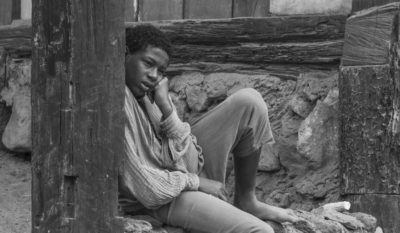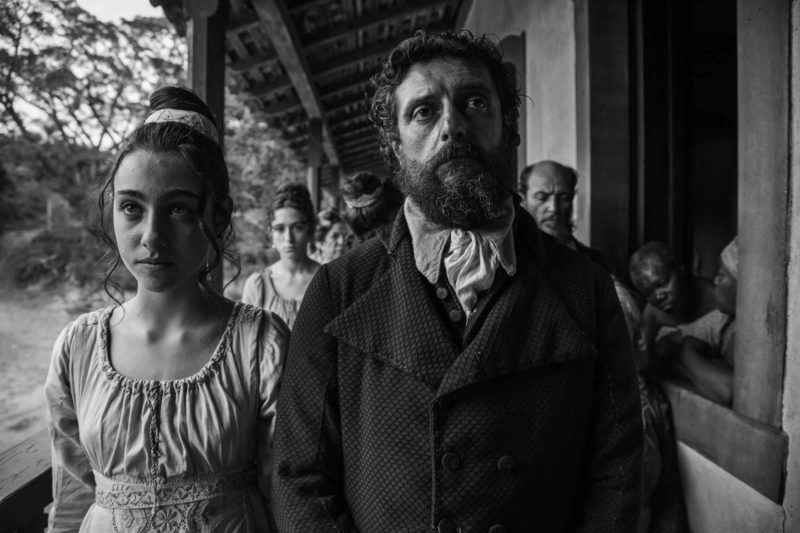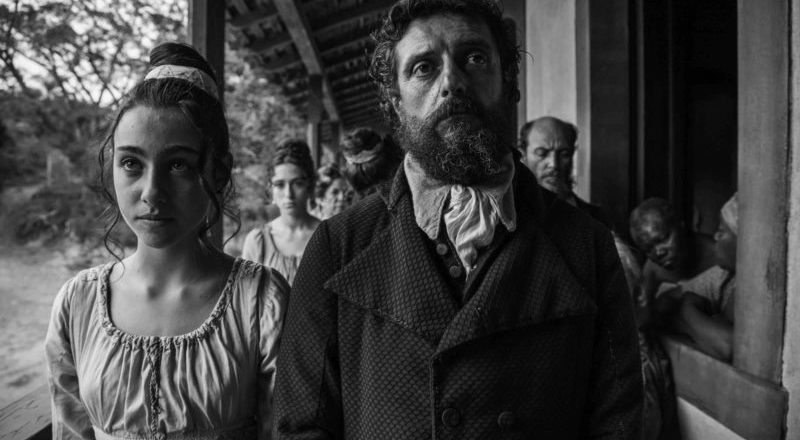REVIEW: ‘Vazante’ features stunning cinematography

Vazante, the new film from Brazilian writer-director Daniela Thomas, is a thoughtful, in-depth look at how a girl adapts to her new surroundings, her new husband and her new connection with the slaves working on the family estate. The film, shot in black and white, features beautiful cinematography and several arresting images that linger in the mind.
At the center of the story is Beatriz (Luana Nastas), who doesn’t say much throughout the two-hour drama. She dotes on her father and walks around the family property barefoot, always inspecting the environment and sometimes earning the disapproval of her mother.
There’s also António (Adriano Carvalho), who has returned home to find out that his wife has died in labor. Left a widow and father-less, he looks toward Beatriz, his wife’s niece, to become his new partner.
Throughout the saga of Beatriz getting married and adapting to life in the shadow of António, the slaves on the property are seen working under hellish conditions. The opening scene of the movie shows a line of slaves walking barefoot through the mountains, stepping on mounds of mud and shaking because of the cold temperatures. Their struggles on António’s property sit in the periphery but constantly influence the relationship between the newly betrothed.
The movie is set in Brazil’s Diamantina Mountains, which offer beautiful visuals for this complicated story (kudos to cinematographer Inti Briones). There’s one wide shot early in the film that shows António’s enormous house in the forest. Thomas lets the camera stay with the image for a few beats. Other times she abandons these wide shots for extreme close-ups of faces and feet.
The juxtaposed images are striking. António will be seen resting lazily in his hammock, while a slave worker will be toiling in the fields or in the kitchen. Feliciana (Jai Baptista), a woman who works on the estate, and is made to share a bed with António, offers a tender hand to her own children, yet she’s living in difficult, violent circumstances.

Beatriz is a connection between these two disparate worlds. She is curious about the workers on the estate, constantly going down to see where they live and toil. Her walks lead her further away from António and the rituals demanded by her marriage; perhaps it’s these digressions that offer her a respite from this marital suffocation. She is, after all, still a girl.
On these journeys, she meets Virgílio (Vinicius Dos Anjos), Feliciana’s son. The two young characters make a connection, yet the prospects of their budding friendship is almost certainly doomed.
Vazante is a slow-moving drama, one that relies on Thomas’ gathered visuals rather than much dialogue. In fact, there are many scenes in the film that go speechless, and yet it’s never difficult to follow the director’s thesis.
This is a strong, brutal, important film that touches upon themes both historical and of the minute. It may be set in 1821, but the ideas of oppression, racism, gender inequality and colonial realities are unfortunately still present in today’s society. This is as much a parable as it is an historical tale.
By John Soltes / Publisher / John@HollywoodSoapbox.com
Vazante (2018), directed by Daniela Thomas and written by Thomas and Beto Amaral, stars Adriano Carvalho, Luana Nastas, Jai Baptista, Vinicius Dos Anjos, Sandra Corveloni and Juliana Carneiro da Cunha. Running time: 116 minutes. In Portuguese with English subtitles. Rating: 




